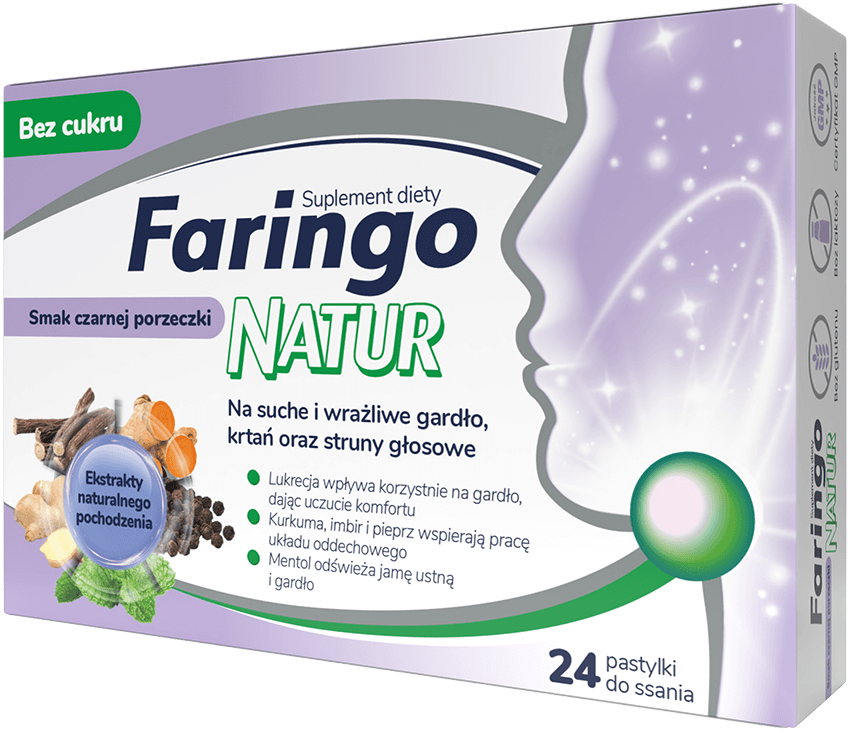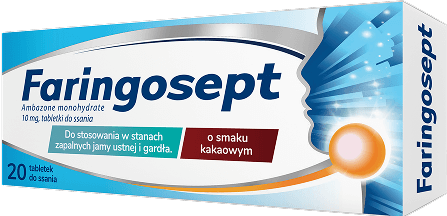
Causes
CAUSES OF SORE THROAT1,2

Viral infections
Viral diseases that cause sore throats include:
- Cold
- Flu
- Infectious mononucleosis (the most common cause is Epstein-Bar virus)
- Measles (rubeola)
- German measles (rubella)
- Chickenpox (varicella)
- Sars-Cov-2 coronavirus disease (COVID-19)
- Croup – a common childhood illness characterized by a harsh, barking cough
Bacterial infections
Many bacterial infections can cause a sore throat.
The most common is Streptococcus pyogenes (group A streptococcus) which causes streptococcal pharyngitis.

Other causes 1,2
Other causes of sore throat include:
Allergies. Allergies to pet dander, moulds, dust and pollen can cause a sore throat. They may be accompanied by nasal secretions that can worsen throat irritation and tear secretions.
Dryness. Dry air inside rooms can cause a dry, scratchy feeling. Mouth breathing – often due to chronic nasal congestion – can also cause a sore throat.
Irritants. Outdoor air pollution, as well as indoor pollution, such as cigarette smoke or exposure to chemicals, can cause chronic sore throats. Chewing tobacco, drinking alcohol and eating spicy foods can also irritate the throat.
Muscle strain when speaking loudly, talking or singing for long periods of time without rest.
Gastroesophageal reflux disease (GERD) is a disorder of the digestive system in which stomach acid reaches the oesophagus. Other signs or symptoms may include heartburn, hoarseness, and a lump in the throat.
HIV infection. A sore throat and other flu-like symptoms sometimes appear early after being infected with HIV infection. A person who is HIV positive may also feel chronic or recurrent sore throat due to a fungal infection or due to a viral infection with cytomegalovirus (CMV). These infections can be serious in people with compromised immune systems.
Tumours. Cancerous tumours of the throat, tongue or larynx can cause a sore throat. Other signs or symptoms may include hoarseness, difficulty swallowing, noisy breathing, lump in throat and blood in saliva or phlegm.
Rarely, an area of infected tissue (abscess) in the throat or swelling of the cartilage covering the upper part of the larynx (epiglottis) can cause a sore throat. Both can block the airway, causing a medical emergency.
If you are sick, feel dizzy or anticipate that “something is taking over you”, use Faringosept.
And if you additionally need to moisturise the throat mucosa, you can also alternate Faringosept with FaringoNatur, which has a moisturizing, protective and refreshing effect.

Food Suplement
Moisturizes, protects and refreshes the throat, larynx and vocal cords!
This site is a product presentation site. For proper treatment and complete information, please consult your doctor or pharmacist.
Literature:
1. Sore throat – NHS (www.nhs.uk)
2.Sore throat – Symptoms and causes – Mayo Clinic

